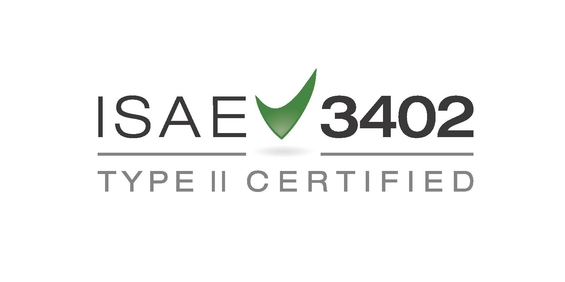The RobinHood App and financial markets in September
Last month, I wrote to you about wishes for an angry fairy that you would rather not want to come true. About risks in growth stocks, which seemed very expensive and would be vulnerable to higher inflation… sooner rather than later. But hardly had I written those words or gems like Tesla, Apple, etc. lost some of their shine. Had inflation suddenly risen sharply? No, it was probably a speculative digital bubble that the so called RobinHood company helped to create. RobinHood is an App that has received a lot of media attention and with which you can conduct “free” securities transactions. RobinHood believes that financial markets should not only be accessible to the rich. (Stealing from the rich and handing out to the poor, no, it is not going that far!)
The RobinHood App is easy to install via a smartphone. Since spring, large groups of American youth have started speculating on financial markets with this App. Even with borrowed money, everything is possible and especially those options that can be taken out for free, proved to be very popular. They mainly bet on stocks like Apple and Tesla. But after a fivefold increase of Tesla’s price this year, it suddenly dropped by 40% for a moment and all those call options were suddenly worthless. Did you know that nowadays you can buy options with a maturity of a week, where it used to be at least one month?
Hence, in August there was talk of a cold shower in markets, although it did not last that long. And was it really all due to those young people? Probably not, the market had seemed ripe for a correction for some time already. And how idealistic was this RobinHood really? Time and again, this company sold information about an approaching flow of orders to “high frequency” traders, who could anticipate those orders. As a result, many customers may not have been charged a fair price. The SEC is now investigating this and may come up with a hefty fine. Although it fits in a trend, one could and should have one’s doubt on brokers who work for no fee at all….
Incidentally, the information advantage of flash traders also appears to be a current problem of the Euronext trading system, as the Dutch financial press reported on 5 October. The last word has certainly not yet been said about this.
World economic status
We are now in the middle of the next phase of the global COVID-19 crisis. But then, the recovery of stock prices during August in the poorest countries, the Frontier Markets, was striking. One could hear comments that these countries have gone through so many crises before that they could take the corona crisis well in their stride. We should on the other hand not forget the importance of the stock market punishment that these markets suffered in the spring.
In the current new phase of uncertainty and emergency aid, public finances get increasingly stretched, even in the richest countries. Aid packages are therefore becoming smaller in size. While on mainland Europe and in richer Asian countries support is still reasonably stable, the situation in the UK and in North and South America is more complex. In the UK, the economic downturn due to the corona crisis is not only dramatic (-20%), but the country is still also being threatened by a ‘hard’ Brexit, at least if Boris Johnson does not quickly withdraw his threat to torpedo the Brexit agreement concluded earlier.
Bluff, intimidation, an emergency jump, nobody knows exactly what Boris is up to. Moreover, preparations for a hard Brexit on British side in particular have so far been poor. A long column of lorries at Dover port is no longer a wild fantasy. Such a crisis, with a return to old-fashioned high trade tariffs and therefore sharply rising prices for all kinds of essential necessities of life, is not one hopes for in the country where Robin Hood was just invented… But perhaps Johnson is still aiming for a ‘last-minute’ solution?
In the US, Democrats and Republicans are still arguing over the next emergency package. Hopefully they will get there before the elections on 3 November, but no guarantees here. So masses of poor people are still in danger of being expelled from their homes. Donald also had to leave his White House for a while, but immediately got his presidential suite and his cars back in the hospital. It appears that his illness has softened him a touch and the chances of getting that second emergency program have now increased a bit.
Economic outlook
Of course, we all hope for a safe vaccine that will be globally distributed. On this subject, the omen is not yet good, also because most autocratic leaders, Trump not excluded, prefer to skip serious scientific research and bluff their way forward. In reality, we have to plow through this second wave for at least several more months before a vaccination could be rolled out globally.
This is economically painful, just now that the recovery had taken serious shape. The question “to be or not to be” will remain topical, especially for smaller companies worldwide. It will be exciting, also politically, as in many countries support for far-reaching measures has weakened. This viral fatigue is of course completely understandable psychologically, but also difficult because the virus is most “successful” in the cooler months and probably in the least disciplined countries.
Will we as a result of the ‘virus fatigue’ still be able to retain the somewhat restored consumer confidence or do we crawl back into our shells and continue saving? Ultimately, we are the ones who have to keep our money moving and get the economy back on track. But will entrepreneurs again be forced to take tough measures as a result of the second wave? Many people are likely to lose their jobs in the coming months which cannot support renewed consumer confidence, even when central banks and governments keep the tap wide open.
Investments
Partly for this reason, we are still keeping some of our powder dry as far as equities are concerned and are these days we are mainly active in expanding our Private Debt Pools. In the meantime, the third Private Debt Pool has been launched, with both high-quality loans and written-down credit facilities that require restructuring. By the way, all these investments are managed by external, specialized fund managers. As a result, we also achieve a diversification into hundreds of underlying loans, perhaps the most important aspect of investing in a Private Debt Pool anyway.
We want to invest your money where it makes sense, and we think it is likely to come back. As such, we are a little less generous than the real Robin Hood. On the other hand, if you wish to be more generous yourself, you can be a Robin Hood yourself and focus all your arrows on the goals you’d wish to support.
We are perhaps are a bit too careful, but in at the same time, we keep our arrows ready for possible unrest that might await us in the near future. In any case, it will not be boring going forward…!
BY: WOUTER WEIJAND, Chief Investment Officer


